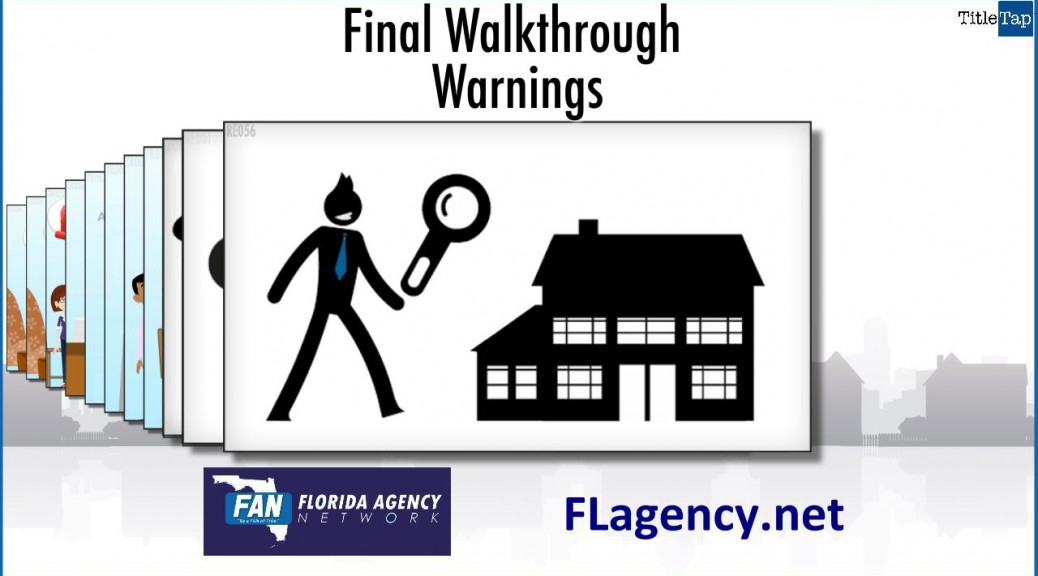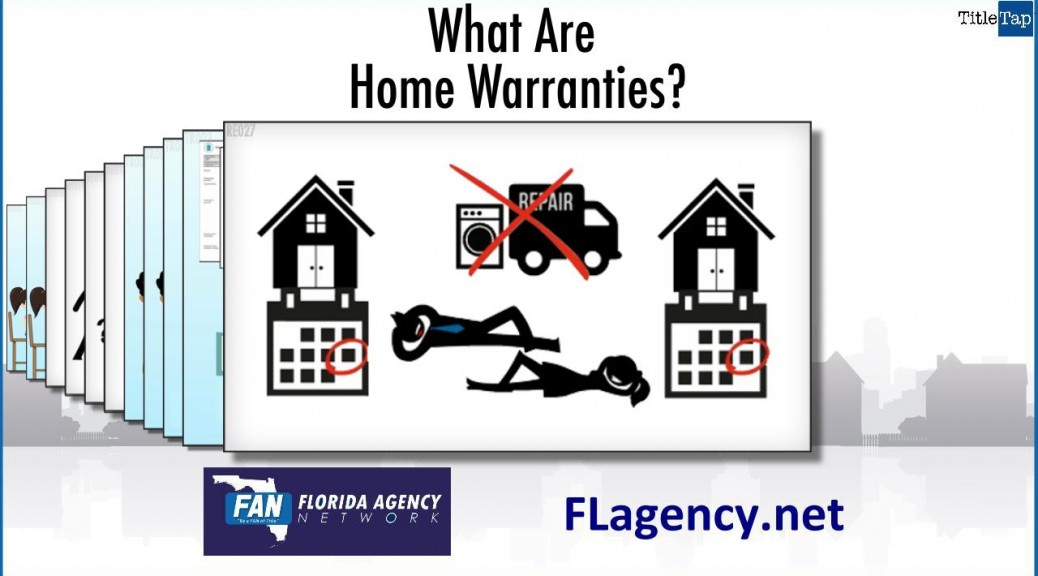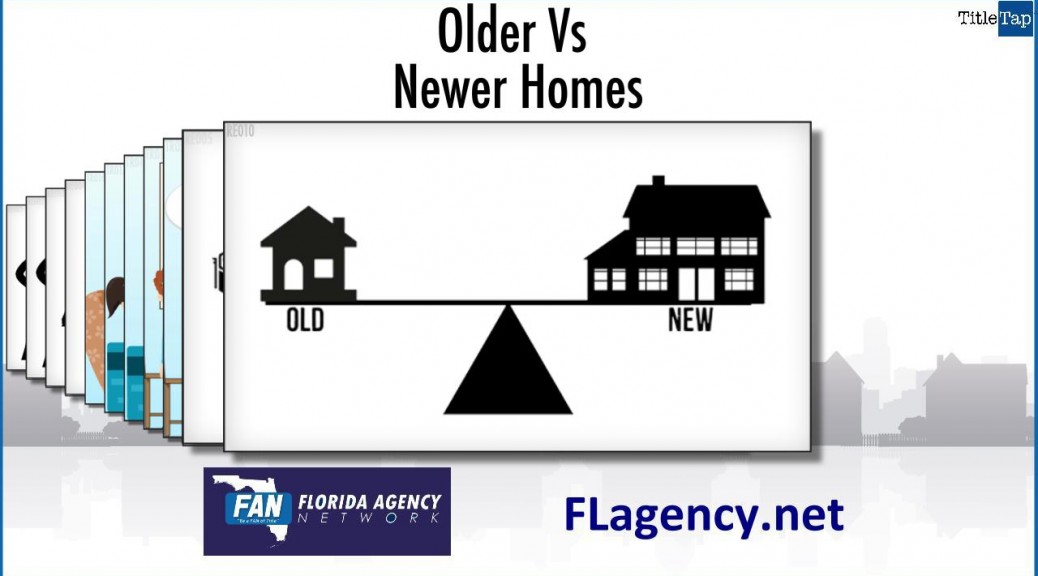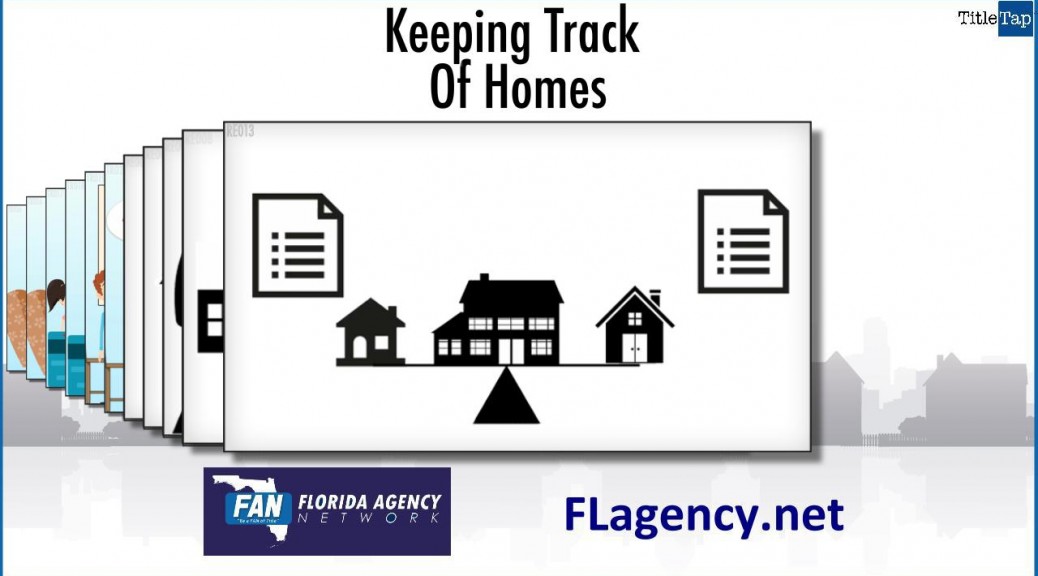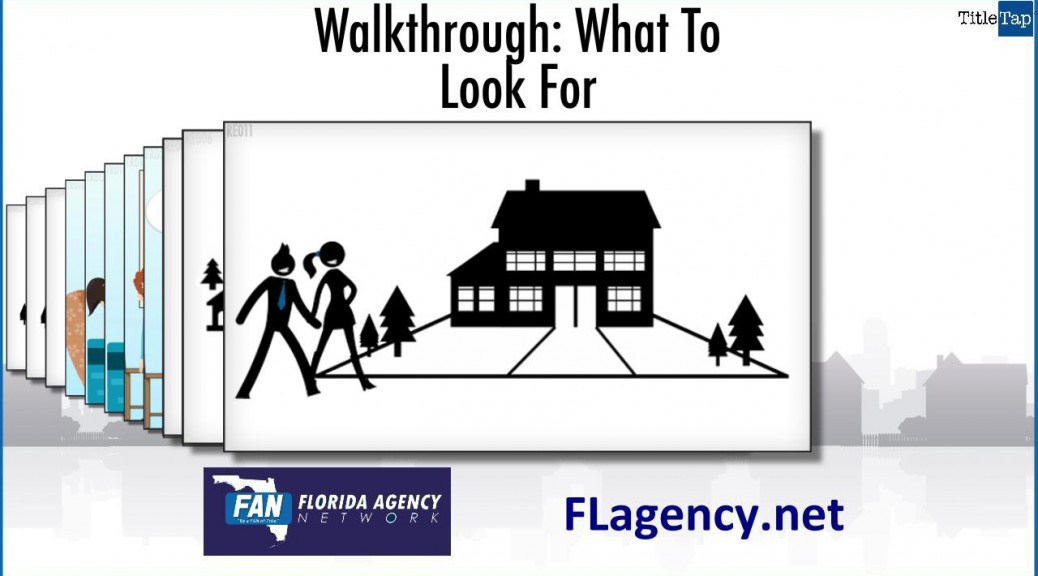http://fwd5.wistia.com/medias/ookw3gzwwx?embedType=iframe&videoFoam=true&videoWidth=640
Well, as this story shows, this will likely be the first opportunity to examine the house without furniture giving you a clear view of everything.
Check the walls and ceilings carefully as well as any work the seller agreed to do in response to the inspection.
Any problems discovered previously that you find uncorrected should be brought up prior to closing. It is the seller’s responsibility to fix them.
Category: Buying a Home
What Are “Home Warranties”, And Should I Consider Them?
http://fwd5.wistia.com/medias/99n1clf88y?embedType=iframe&videoFoam=true&videoWidth=640
You’ll see some pictures in this video to help you remember later, but essentially, home warranties offer you protection for a specific period of time, such as one year, against potentially costly problems like unexpected repairs on appliances or home systems which are not covered by homeowner’s insurance.
Warranties are becoming more popular because they offer protection during the time immediately following the purchase of a home a time when many people find themselves cash-strapped.
What About A Home Located In A Flood Plain?
http://fwd5.wistia.com/medias/3ryfr9a2mm?embedType=iframe&videoFoam=true&videoWidth=640
A flood plain is an area of land adjacent to a stream or river that experiences flooding during periods of high discharge. Watch this video and it’ll make sense.
If you live in a flood plain lenders will require that you have flood insurance before lending any money to you. But if you live near a flood plain, you may choose whether or not to get flood insurance coverage for your home.
Check the National Flood Insurance Program site at FloodSmart.gov for more information. And work with an insurance agent to construct a policy that fits your needs.
What Does A Home Inspector Do, And How Does An Inspection Figure In The Purchase Of A Home?
http://fwd5.wistia.com/medias/7kvpfhfw6s?embedType=iframe&videoFoam=true&videoWidth=640
As we show you in this video, an inspector checks the safety of your potential new home.
Home Inspectors focus especially on the structure, construction and mechanical systems of the house and will make you aware of only repairs that are needed.
The Inspector does not evaluate whether or not you’re getting good value for your money.
Generally, an inspector checks (and gives estimates for repairs on):
- the electrical system
- plumbing and waste disposal
- the water heater
- insulation and ventilation
- the heating and AC system
- water source and quality
- the potential presence of pests
- the foundation, doors, windows, ceilings, walls, floors, and roof.
Be sure to hire a home inspector that is qualified and experienced. It’s a good idea to have an inspection before you sign a written offer since once the deal is closed you’ve bought the house as-is.
What Is Earnest Money, And How Much Should I Set Aside?
http://fwd5.wistia.com/medias/cepf9w905o?embedType=iframe&videoFoam=true&videoWidth=640
Like the video shows, “earnest money” is money you put down to demonstrate your seriousness about buying a home. It must be substantial enough to demonstrate good faith and is usually between 1-5% of the purchase price though the amount can vary with local customs and conditions.
If your offer is accepted the earnest money becomes part of your down payment or closing costs. If the offer is rejected, your earnest money is returned to you. If you back out of a deal, you may forfeit the entire amount.
Is An Older Home A Better Value Than A New One?
http://fwd5.wistia.com/medias/riw1eu1vcp?embedType=iframe&videoFoam=true&videoWidth=640
Well, as this story shows, there isn’t a definitive answer to this question. You should look at each home for its individual characteristics.
Generally, older homes may be in more established neighborhoods offer more ambiance and have lower property tax rates. People who buy older homes, however shouldn’t mind maintaining their home and making some repairs.
Newer homes tend to use more modern architecture and systems are usually easier to maintain and may be more energy-efficient. People who buy new homes often don’t want to worry initially about upkeep and repairs.
What Questions Should I Ask When Looking At Homes?
http://fwd5.wistia.com/medias/ayc6vyk8w3?embedType=iframe&videoFoam=true&videoWidth=640
As you’ll see in this video, many of your questions should focus on potential problems and maintenance issues.
Does anything need to be replaced? What things require ongoing maintenance like paint, roof, heating and AC, appliances and carpet?
Also ask about the house and neighborhood focusing on quality of life issues. Be sure the seller’s or real estate agent’s answers are clear and complete.
Like the video says, ask questions until you understand all of the information they’ve given.
Making a list of questions ahead of time will help you organize your thoughts and arrange all of the information you receive. The HUD Home Scorecard can help you develop your question list and keep a record for each potential home.
How Can I Keep Track Of All The Homes I See?
http://fwd5.wistia.com/medias/lj3p25dlul?embedType=iframe&videoFoam=true&videoWidth=640
There are some great tips in this video, like:
if possible, take photographs of each house: the outside, the major rooms, the yard and extra features that you like or ones you see as potential problems.
Write things down as you go. And don’t hesitate to return for a second look.
Use the HUD Home Scorecard (www.hud.gov/buying/checklist.pdf) to organize your photos and notes for each house.
What Should I Look For When Walking Through A Home?
http://fwd5.wistia.com/medias/hml0wbiy81?embedType=iframe&videoFoam=true&videoWidth=640
As we show you in this video, in addition to comparing the home to your minimum requirement and wish lists use the HUD Home Scorecard and consider the following:
- Is there enough room for both the present and the future?
- Are there enough bedrooms and bathrooms?
- Is the house structurally sound?
- Do the mechanical systems and appliances work?
- Is the yard big enough?
- Do you like the floor plan?
- Will your furniture fit in the space?
- Is there enough storage space?
Bring a tape measure to better answer these questions and write down your measurements.
- Does anything need to repaired or replaced?
- Will the seller repair or replace the items?
Imagine the house in good weather and bad and in each season. Will you be happy with it year-round? Take your time and think carefully about each house you see. Keep the scorecard and notes for each one.
How Can I Find Out About Schools & Community Resources?
http://fwd5.wistia.com/medias/m82qbasrtq?embedType=iframe&videoFoam=true&videoWidth=640
The video puts this in more visual terms, but basically, contact the local Chamber of Commerce for promotional literature or talk to your real estate agent about welcome kits, maps, and other information.
You can get information about school systems by contacting the city or county school board or the local schools.
You may also want to visit the local library. It can be an excellent source for information on local events and resources and the librarians will probably be able to answer many of the questions you have.

